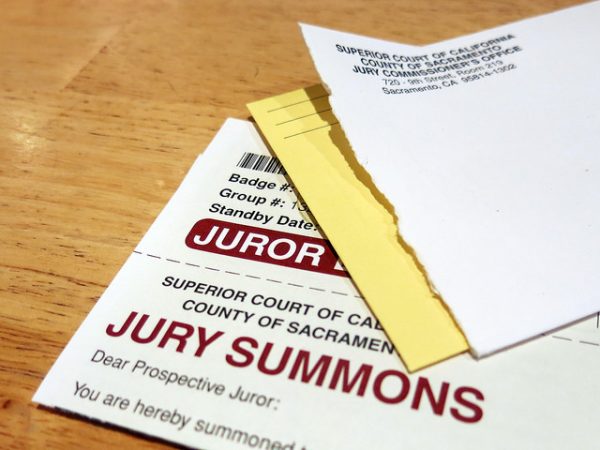
The U.S. Supreme Court is currently hearing arguments for Peña-Rodriguez v. Colorado, a case concerning allegations of racial bias in jury deliberations. Many states prohibit hearing juror testimony following the conclusion of a trial; however, following the deliberations of Peña-Rodriguez’s case, two jurors signed affidavits attesting to racial bias by a fellow juror. They allege that the juror referred to an alibi witness as discreditable because he was “an illegal,” and asserted that the defendant was guilty “because he’s Mexican.” After initially being struck down by both the trial judge and the Colorado Supreme Court, Peña-Rodriguez is now making his case to the highest court, a task which research suggests may prove extremely challenging.
In her book The New Jim Crow, Michelle Alexander illustrates why challenging racial bias in juries is so difficult. Despite the passage of laws such as Batson v. Kentucky, which prohibits prosecutors from discriminating on the basis of race when selecting juries, both prosecutors and defense attorneys are allowed peremptory strikes, or the ability to strike potential jurors for just about any reason they choose. Challenging instances of racial bias is even more difficult following the Supreme Court decision in Purkett v. Elm, which ruled that even if there is a pattern of striking a particular racial group by a prosecutor, providing any race-neutral reason (the prosecutor in this case used hair length) is enough to justify that the decision is not based on race.
- Nijole V. Benokaritis. 1982. Racial Exclusion in Juries. The Journal of Applied Behavioral Science, 18(1), 29-47.
- Hiroshi Fukurai. Edgar W. Butler, & Richard Krooth. 1991. Where Did Black Jurors Go? A Theoretical Synthesis of Racial Disenfranchisement in the Jury System and Jury Selection. Journal of Black Studies, 22(2), 196-215.
Moreover, it is not just legal precedents that solidify racial bias, but also the initial selection process itself that is discriminatory. Potential jurors are drawn from registered voters or Department of Motor Vehicle lists, which contain fewer minorities. Forty-seven states also restrict the rights of felons to serve on juries, which disproportionately limits the presence people of color. Most states and the federal government place a lifetime exclusion for felonies, which automatically bans nearly 30 percent of adult black men from jury service.
- Brian C. Kalt. 2003. Exclusion of Felons from Jury Service. American University Law Review, 53, 1-149.
- Darren Wheelock. 2005. Collateral Consequences and Racial Inequality: Felon Status Restrictions as a System of Disadvantage. Journal of Contemporary Criminal Justice, 21(1), 82-90.

Comments